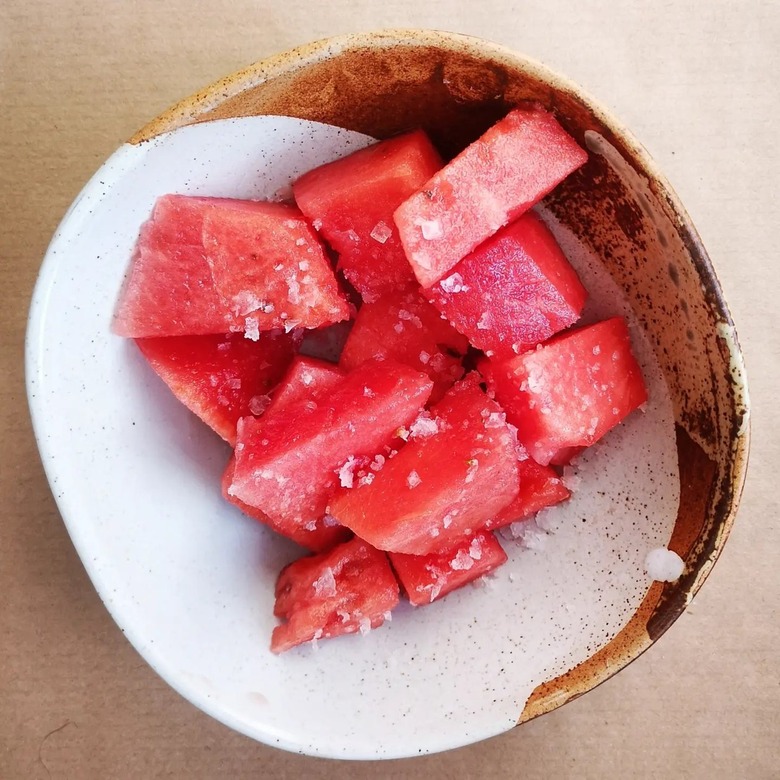Why Do People Put Salt On Fruit?
Salt might very well be one of the most essential ingredients in the kitchen. So much so that almost every recipe requires at least a bit of salt. But what about solo foods, such as fruits?
Yes, you read that right. We're talking watermelon, peaches, and everything in between. After all, eating salt with fruit happens to be a common practice ... and for good reason, too.
Basically, salt enhances sweet flavors. More specifically, it intensifies the way you detect sweetness. According to the Monell Chemical Senses Center, we have taste cells in the taste buds that are extra-sensitive to sweetness. They're known as (surprise!) sweet-sensitive taste cells.
These cells have molecules called sensors. When sugar is present on its own, the sensors detect sweetness. But as it turns out, the cells also have sensors that detect salt. When salt is present, these sensors react by shuttling sugar into the cells. The result is a stronger sweeter taste.
Now, it's worth noting that salted fruit is nothing new. Salt and fruit are often paired together in many cuisines in myriad ways. For example, in the Philippines, mango is traditionally enjoyed with a super salty shrimp paste. In Mexico, you can find fruit cups seasoned with salt, chili powder, and lime juice.
Meanwhile, in Italy, there's prosciutto e melone — a tasty snack featuring slices of juicy ripe cantaloupe wrapped in salty prosciutto ham.
Of course, you don't need to travel to enjoy the combo of flavors. The next time you're enjoying some fresh fruit, try topping it off with a dash of salt. Your taste buds will thank you.
What fruits taste good with salt?
What fruits taste good with salt?
In general, salt works best with juicy fruits. This includes foods like:
- Peaches
- Nectarines
- Plums
- Watermelon
- Cantaloupe
- Honeydew
- Strawberries
- Mango
- Pineapple
You can also add other spices, like ground black pepper or chili powder, to fruit.

